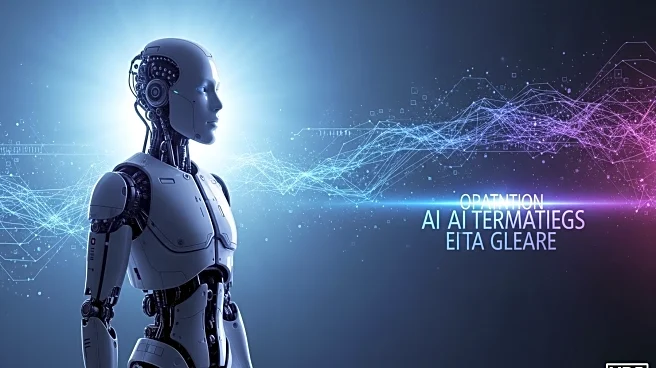What is the story about?
What's Happening?
OpenAI has revised its copyright policy for the Sora 2 AI video generation model following concerns over the use of copyrighted content. Initially, OpenAI's policy allowed the use of copyrighted material unless creators opted out. However, after backlash and potential legal issues, the company has shifted to an opt-in model, requiring explicit permission from copyright holders. This change comes after videos featuring characters from Japanese franchises like Nintendo and Pokémon were generated without permission, while American IPs like Marvel and Disney were not similarly affected. The policy adjustment aims to give rights holders more control over how their characters are used, addressing concerns raised by Japanese lawmakers and creators.
Why It's Important?
The policy change by OpenAI is significant as it addresses the legal and ethical challenges of using AI in content creation. By requiring explicit permission from copyright holders, OpenAI aims to prevent potential lawsuits and protect the interests of creators. This move is crucial for maintaining trust with content creators and avoiding conflicts with major IP holders. The decision also highlights the growing need for clear regulations in AI-generated content, which could influence future policies in the tech industry. Stakeholders in the creative and tech sectors stand to benefit from a more controlled and respectful use of intellectual property.
What's Next?
OpenAI's revised policy may lead to increased collaboration with content creators who are now assured of greater control over their intellectual property. This could foster innovation and new forms of interactive content, as creators explore the potential of AI tools like Sora 2. Additionally, other tech companies may follow suit, adopting similar policies to avoid legal complications. The response from the creative community and IP holders will be crucial in shaping the future of AI-generated content and its integration into mainstream media.
Beyond the Headlines
The situation underscores the ethical considerations of AI in creative industries. As AI tools become more sophisticated, the balance between innovation and intellectual property rights becomes increasingly complex. This development may prompt broader discussions on the role of AI in content creation and the need for international standards to protect creators' rights while encouraging technological advancement.


















